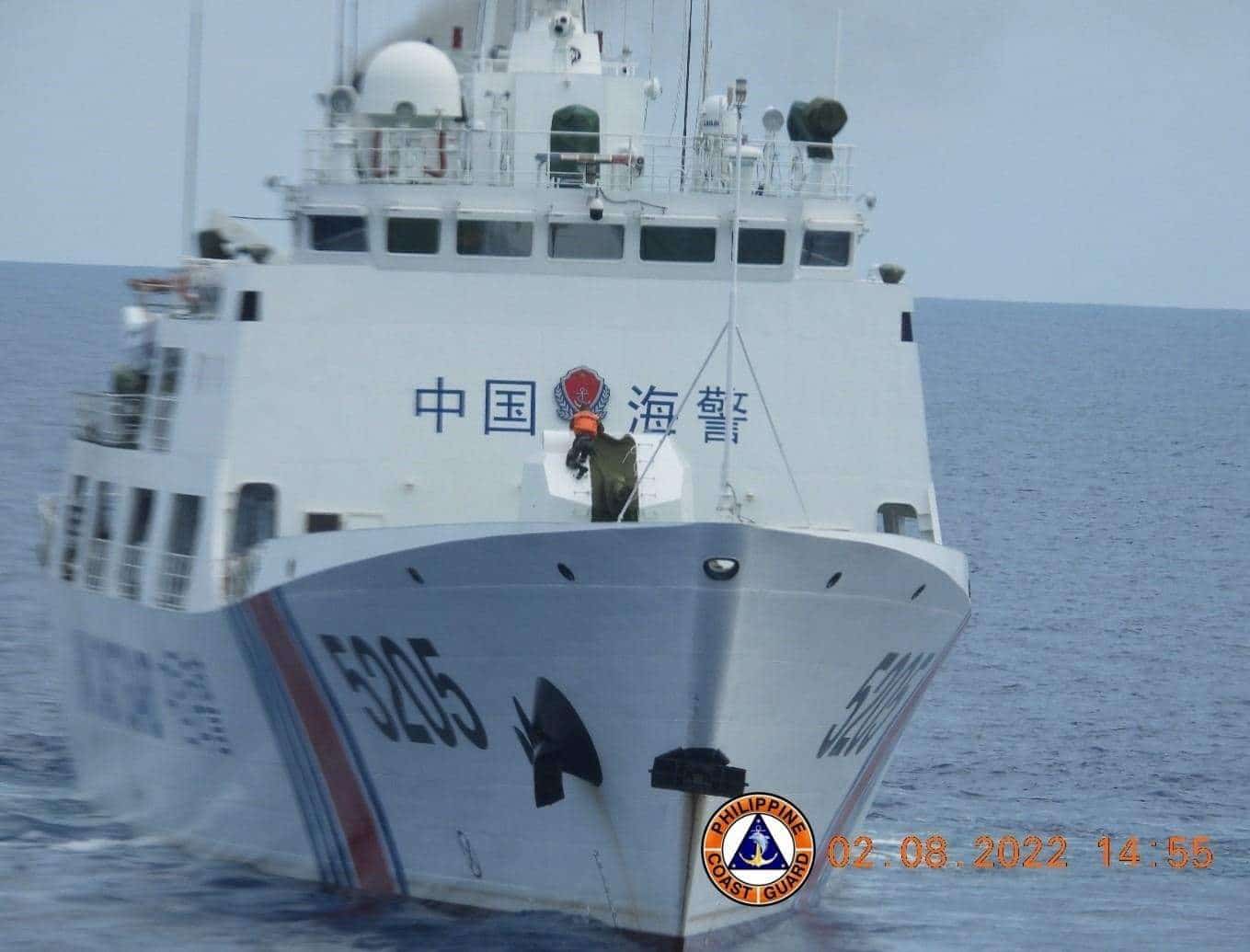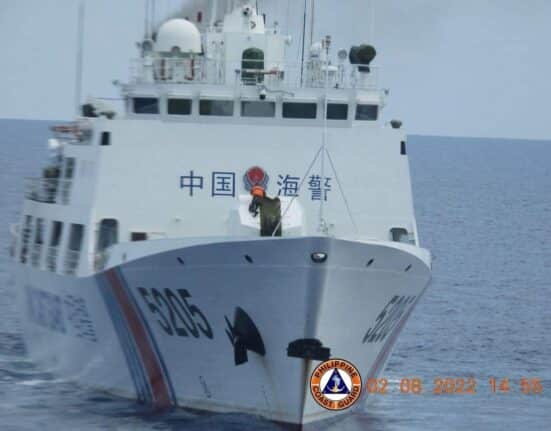SHINING military-grade lasers on naval ships and aircraft may look like a harmless tease or scare tactic. But for Navy and Air Force officials, it’s a step up from the usual intimidations the Chinese have been doing against foreign ships and may spark miscalculations, especially if done in a flashpoint like the West Philippine Sea.
This is why the United States, Australia and Japan quickly released separate statements condemning the Chinese behavior as “provocative.” The US also reminded China that if any Philippine vessel is attacked in the West Philippine Sea, it will come to the aid of the Philippines.
China’s admission
Beijing confirmed last night that its Coast Guard flashed a military-grade laser on a Philippine ship on February 6.
It said the Philippine vessel “intruded” into the Ayungin Shoal (which they refer to as Ren’ai Reef) “without Chinese permission.”
China said their Coast Guard “merely upheld China’s sovereignty and maritime order” by stopping the Philippine Coast Guard vessel, BRP Malapascua, from going to Ayungin Shoal.
Wang Wenbi, the Chinese foreign ministry spokesman, told reporters in a news conference in Beijing that the Chinese had “acted in a professional and restrained way.”
China hopes the Philippines will “avoid taking actions that may exacerbate disputes and complicate the situation.”
“China and the Philippines are in communication on this through diplomatic channels,” Wang added.


Philippine protest
The Philippines, one of the weakest militaries in the Asia Pacific region, resorted to its only recourse – file a diplomatic protest.
The Department of Foreign Affairs said it handed down today, February 14, a note verbale condemning the Chinese Coast Guard’s “dangerous maneuvers and the use of military-grade lasers” against a Philippine Coast Guard supply vessel.
Aside from the shining of lasers, the DFA also protested the Chinese Coast Guard’s “dangerous maneuvers by approaching at a close distance from BRP Malapascua, risking a collision that endangered the Philippine crew.”

“These acts of aggression by China are disturbing and disappointing as it closely follows the state visit to China of President Ferdinand R. Marcos Jr. in early January,” DFA Spokesperson Ma. Teresita Daza said in a statement.
Daza said both presidents have agreed to “manage maritime differences through diplomacy and dialogue, without resorting to force and intimidation.”
Such harassment, Daza added, constituted a “threat to Philippine sovereignty and security as a state.”
Manila then called on Beijing to “direct its vessels to cease and desist from its aggressive activities against Philippine vessels.”
US, Australia, Japan come to PHL rescue
The US, Australia and Japan came to the rescue of their defense ally, the Philippines.
The US, the most powerful military in the world, indirectly reminded China that it has a military obligation to help the Philippines if attacked in the South China Sea.
“The United States stands with our Philippine allies in upholding the rules-based international maritime order and reaffirms an armed attack on Philippine armed forces, public vessels, or aircraft, including those of the Coast Guard in the South China Sea, would invoke US mutual defense commitments under Article IV of the 1951 US Philippines Mutual Defense Treaty,” US State Department spokesman Ned Price said in a statement.
We stand with our Philippine allies in the face of the Chinese Coast Guard’s reported use of a laser device on the crew of a Philippine Coast Guard vessel, recklessly jeopardizing the safety of the crew. https://t.co/FeOKH1TPmu
— State Department Spokesperson 2013-2025 (@statedeptspox_a) February 14, 2023
The US condemned China’s conduct as “provocative and unsafe,” noting that the crew of BRP Malapascua experienced temporary blindness.
“More broadly, the PRC’s dangerous operational behavior directly threatens regional peace and stability, infringes upon freedom of navigation in the South China Sea as guaranteed under international law, and undermines the rules-based international order,” Price added.
Beijing has “no lawful claims” to Ayungin Shoal, Price said, citing a 2016 arbitral decision by a United Nations-sanctioned tribunal.
“We call upon the PRC to abide by the ruling,” Price added.
Meanwhile, Australian Ambassador to Manila HK Yu said Canberra is also concerned about “unsafe and intimidatory actions directed against the Philippines.”
“We continue to call for peace, stability and respect for international law in the South China Sea, a vital international waterway,” Ambassador Yu said.
Australia shares concerns about unsafe and intimidatory actions directed against the Philippines. We continue to call for peace, stability and respect for international law in the South China Sea, a vital international waterway. https://t.co/IdmQ51XoDy
— Australian Ambassador to the Philippines (@AusAmbPH) February 14, 2023
The Japanese Ambassador to Manila also expressed “serious concerns about dangerous behavior against Philippine vessels.”
“All states should respect maritime order based on international law, in particular UNCLOS, and recall that 2016 Arbitral Award is final and legally binding. We firmly oppose any action that increase tensions,” Japanese Ambassador Koshikawa Kazuhiko tweeted.
We express serious concerns about dangerous behavior against PH vessels. All states should respect maritime order based on international law, in particular UNCLOS, and recall that 2016 Arbitral Award is final and legally binding. We firmly oppose any action that increase tensions
— Ambassador of Japan in the Philippines (@AmbJPNinPH) February 14, 2023
How useful was this post?
Click on a star to rate it!
Average rating 0 / 5. Vote count: 0
No votes so far! Be the first to rate this post.
We are sorry that this post was not useful for you!
Let us improve this post!
Tell us how we can improve this post?







